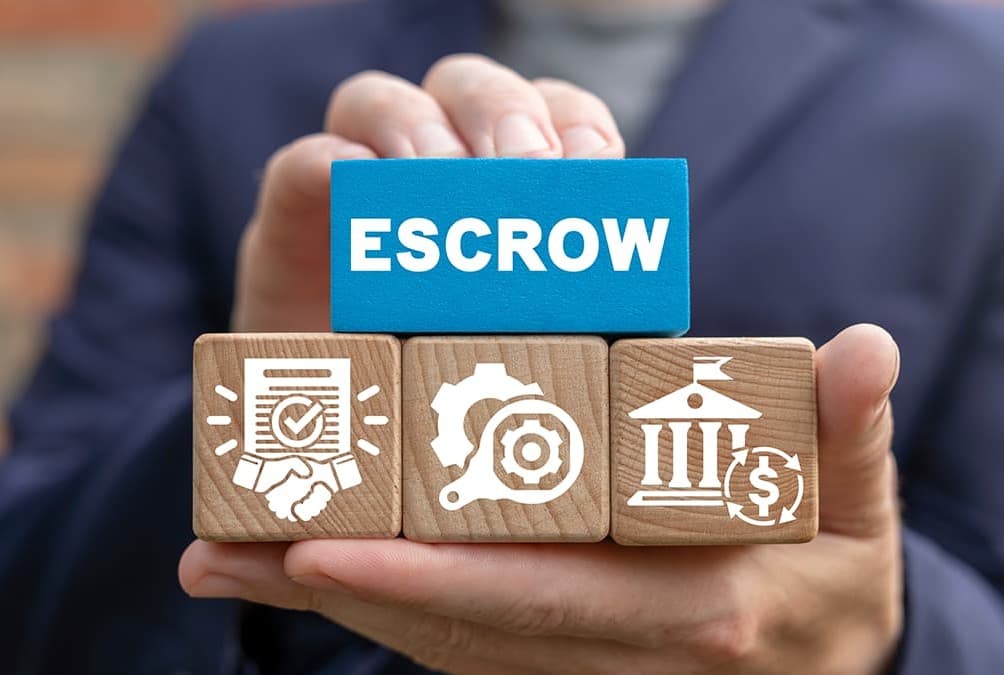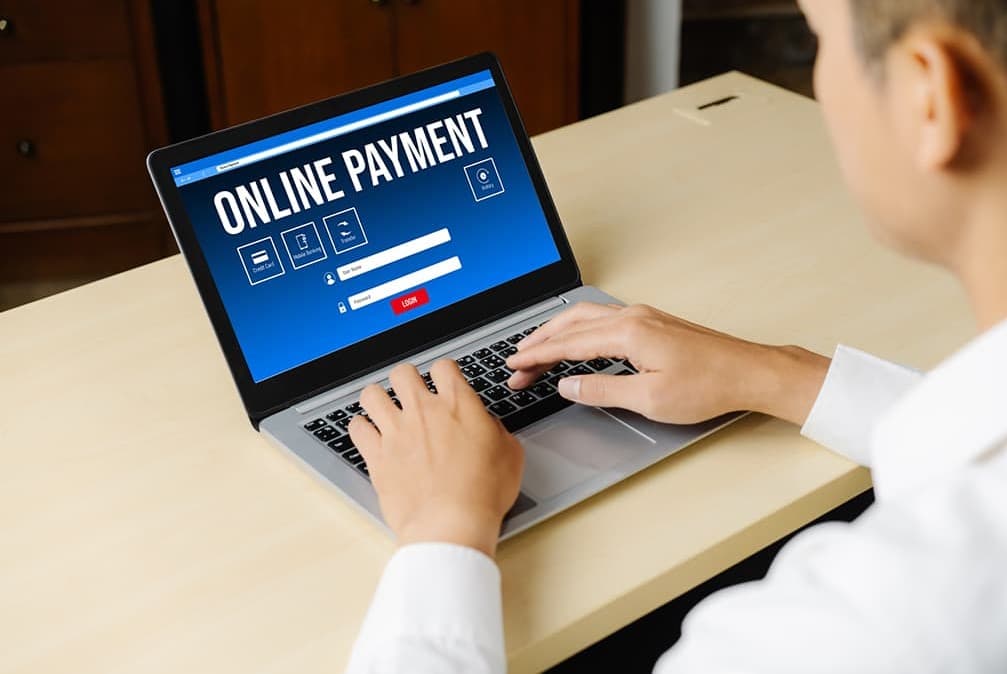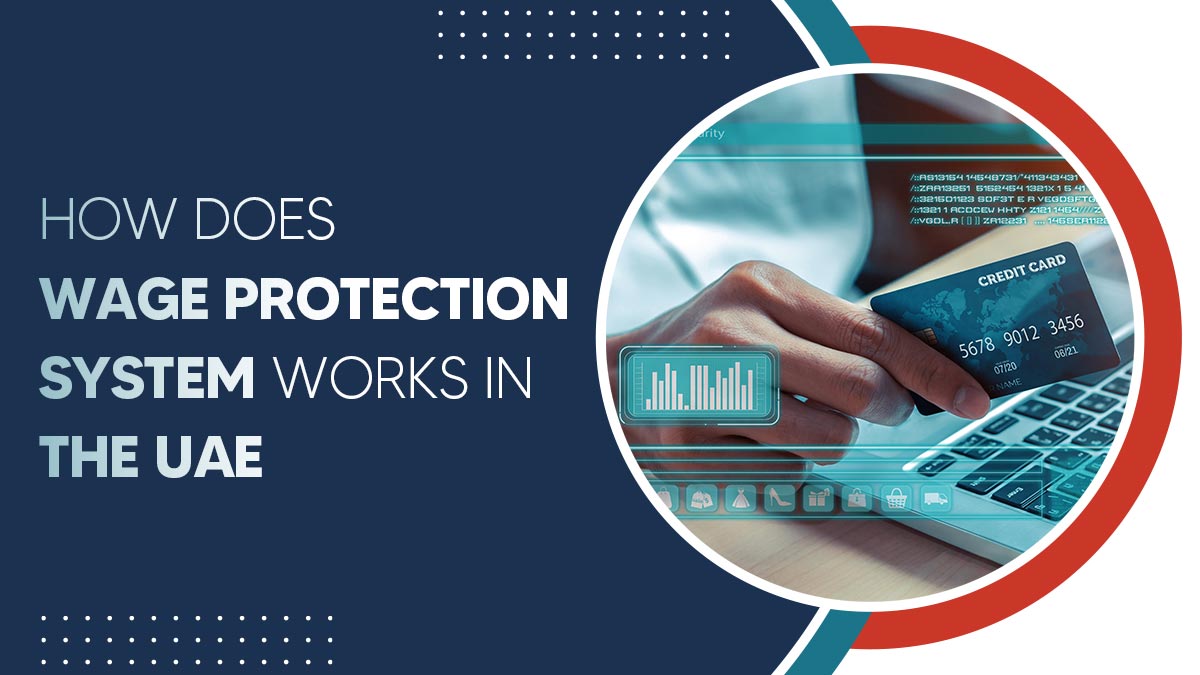Curious about how high-value transactions, particularly in Dubai’s real estate sector, proceed smoothly and securely? One crucial component of the UAE’s financial infrastructure responsible for this is the Escrow Account. But what exactly is an Escrow account in Dubai? Dive in to uncover its significance!
Escrow accounts defense buyers and sellers, guaranteeing all parties fulfil their transactional obligations. This blog will separate the definition, purposes, operation, and potential risks associated with escrow accounts in Dubai. Additionally, we’ll discover their role in easing online transactions and real estate acquisitions.
Whether you’re watching an extravagance apartment purchase in Dubai or just fascinated by safe financial dealings, this blog by Shuraa Business Setup offers valuable insights into understanding escrow accounts in Dubai. Keep reading to dig deeper into this topic.
- What is Escrow Account in Dubai
- Typical Applications of Escrow Accounts
- Significance of Escrow in Financial Transactions
- How do you establish an Escrow Account in Dubai?
- Why are real estate Escrow Accounts essential?
- Primary Advantages of Escrow Accounts
- Functionality of an Escrow Account
- Escrow Accounts in Real Estate Deals
- Utilising Escrow Accounts for Online Transactions
- Secure Guidelines for Online Escrow Usage
- Possible Challenges and Risks Associated with Escrow Accounts
- Documentation for Escrow Account in Dubai
- Concluding Thoughts: The Impact of Escrow in Dubai
- Frequently Asked Questions
What is Escrow Account in Dubai
An Escrow Account in Dubai functions as a protected repository where funds are deposited by one party (or multiple parties) to expend to another party (or parties) depending upon fulfilling specific conditions outlined within the Escrow account arrangement.
The regulatory authorities of each Emirate oversee the operational conditions for real estate Escrow accounts. Every end user contributes to the project’s Escrow account when purchasing off-plan properties within a development. These funds are only kept for project-related expenses such as construction, consultancy, sales and marketing, and land payments.
Payments from the Escrow account is exclusively directed to the project contractor and advisor upon the completion of each construction phase, subject to verification by pre-determined experienced engineers. Any other disbursements from the Escrow account adhere strictly to the terms outlined in the Escrow Agreement and comply with regulatory directives.
Typical Applications of Escrow Accounts

Escrow accounts in Dubai are commonly utilised in real estate transactions to safeguard the interests of both buyers and sellers. In the home-buying process, your purchase agreement classically involves a good faith deposit held in an escrow account until the transaction is completed, demonstrating your genuine intention to purchase the property.
The loan lender found another escrow account to cover taxes and insurance after the purchase. A portion of your monthly mortgage payment is allocated to this account until tax and insurance obligations arise. This arrangement protects your initial deposit and guarantees that funds are allocated correctly under the sale terms.
However, escrow accounts extend beyond real estate transactions and find applications in various other contexts, such as online transactions, banking, intellectual property taxes and insurance, mergers and acquisitions, and legal proceedings.
Significance of Escrow in Financial Transactions
Escrow accounts play a pivotal role in transactions dealing with substantial money. They instil a sense of security and facilitate monthly payments towards insurance premiums and taxes rather than a single large payment. This arrangement proves advantageous for both parties involved, particularly in transactions concerning high-value items.
An escrow agent oversees the escrow process, serving as a neutral intermediary. They guarantee that all parties adhere to the terms outlined in the contract or agreement. This impartial oversight offers assurance and peace of mind to all parties involved. Escrow arrangements can be applied to nearly any contract exchanging money or property.
Escrow is a preferred method for mitigating risks and guarding against potential non-performance of obligations by the counterparty. It is a valuable tool applicable across diverse transactions, including joint ventures, mergers and acquisitions, real estate transactions and leasebacks, share sales, asset sales, cryptocurrency exchanges, inter-insurer disputes, and construction projects.
How do you establish an Escrow Account in Dubai?
Setting up an escrow account for an off-plan project involves specific steps, varying by Emirate. Here’s a breakdown of the process in Dubai:
- Access the “Oqood” portal and navigate the “Escrow Account Link.”
- Select the desired service and complete the application submission.
- The appointed trustee will review the application, upload necessary documents, and forward it to the TAS system.
- The escrow account department will then assess the application for approval or rejection. Upon approval, the system is updated automatically.
Note: This process applies exclusively to developers in Dubai. Developers in other Emirates should adhere to the procedures specified on the respective land authorities’ websites.
Why are real estate Escrow Accounts essential?
In the UAE, purchasing off-plan properties entails numerous checklists, but securing transactions is paramount. Enter the escrow account: a secure third-party entity that safeguards funds until the transaction’s completion. Here’s why it’s indispensable:
- Protection of Rights: Escrow ensures impartial management of funds, safeguarding the interests of both parties and facilitating smooth transactions.
- Secure transactions process: Depositing funds in an escrow account assures developers of buyers’ financial capability, enhancing transaction security.
- Assurance of payment: Managed independently, escrow accounts eliminate financial discrepancies, assuring both parties have secure finances.
- Legal Track Record: Escrow accounts provide a legal record of payments, serving as crucial evidence in potential legal disputes.
In the UAE, governmental initiatives mandate escrow accounts for off-plan property purchases, further enhancing real estate investment appeal. Explore available properties in the UAE to seize investment opportunities today.
Primary Advantages of Escrow Accounts
Key benefits of an escrow account comprise:
- Competitive terms and pricing.
- Competitive profit rates on account balances and the option to establish fixed deposits.
- Strict adherence to Sharia principles.
- Provision of value-added services, enabling outsourcing of administrative duties to the Bank.
- Comprehensive account-level Management Information Systems (MIS) and real-time access to account information.
- Experienced in-house engineers verify payment certificates per RERA requirements.
- Dedicated customer service centre for developers, offering a single point of contact with the Bank.
- Our network of 90 branches across the UAE ensures convenient access to our services.
Functionality of an Escrow Account
Escrow accounts have played a vital role in Dubai’s financial landscape for over fifteen years, primarily protecting investors in real estate. They are notably employed in off-plan projects, facilitating secure deposit of payments.
The Role of the Escrow Agent
In this scenario, the bank acts as the escrow agent, managing the account under the Dubai Land Department’s and RERA’s watch. It’s essential to note that the account is created for the project’s benefit, not the developer’s, with funds designated solely for construction purposes.
The agreement between the developer and the bank delineates the key construction milestones linked to disbursements from the account. The bank oversees construction progress, validates completion of each stage, and directly pays contractors accordingly.
Handling Funds in Escrow
When committing to buy an off-plan property, a down payment and monthly instalments must be made to the escrow account. This action assures the developer of adequate finances to cover the entire cost, ensuring a safe transaction for all involved. Managed by a third party, the escrow account minimises the risk of financial discrepancies. Moreover, it is legally mandated to maintain a comprehensive record of payments, serving as crucial evidence in legal matters.
Release Criteria for Funds
Funds within the escrow account are allocated to settle contractor and project consultant invoices. However, certain developer expenses are excluded. Marketing and general overheads are limited to a maximum of 5%, while land purchase funds cannot be withdrawn from the account. Developers may only request funds from the escrow payment account per conditions specified by the accounts management authorities.
Escrow Accounts in Real Estate Deals
For more than ten years, Escrow Accounts have been vital in Dubai’s real estate transactions. They were introduced to safeguard investor interests in off-plan projects. Funds deposited into these accounts are strictly designated for project construction, not for the developer’s personal use. Each off-plan property sale in Dubai requires establishing a separate escrow account.
Utilisation of Escrow Accounts in Home Buying
The functionality of escrow accounts in home purchases is regulated by Law No. 8 Concerning Escrow Accounts for Real Property Development in the Emirate of Dubai, established in 2007. Oversight of these accounts falls under the purview of the Dubai Land Department and RERA.
To initiate an escrow account, developers must furnish various documents, including a license, plot title deed, contracts with contractors, project documentation, drawings, and additional requisite paperwork.
Roles of Buyer and Seller
The responsibilities of both buyer and seller regarding the escrow account are defined. The buyer’s payments for the off-plan project are deposited into the escrow account, where they continue until specific conditions are met.
The seller or developer is banned from managing the escrow account, as the funds are primarily owed for settling contractors’ and project consultants‘ invoices. However, it’s important to note that not all developer expenses can be covered by funds from the account.
The Importance of Escrow in Mortgage Payments
Escrow plays a key role in facilitating monthly mortgage payments. Funds from the escrow account are sent directly to the project contractor and consultant upon the completion of each construction stage and validated by experienced engineers. Progress Payment Certificates (PPCs) are utilised to bill each stage of mortgage insurance.
Utilising Escrow Accounts for Online Transactions

Escrow Accounts in Dubai protects online marketplaces. In Dubai, they operate as holding accounts where funds are deposited by one party and transferred to another party upon meeting specific conditions. This process is supervised by RERA and governed by Escrow Law, which outlines the protocols for managing real estate escrow accounts.
Guaranteeing Online Protection for Buyers and Sellers
The core purpose of an escrow account is to provide safety for both the buyer and the seller throughout a transaction. For instance, in purchasing an off-plan property within a development, the buyer’s payment is directed to the project’s escrow account, where stringent controls are in place.
These funds are strictly reserved for expenses directly linked to project construction, consultancy, sales, marketing, and land payments, preventing the developer from accessing them for other purposes. This guarantees the proper allocation of funds and assures the seller of payment once the agreed-upon conditions are met.
Secure Guidelines for Online Escrow Usage
To establish an escrow account in Dubai, several documents are required. These include RERA approval, a signed Escrow Account Agreement, a mortgage escrow account, and opening forms.
Additional documents needed encompass:
- A Land Title Deed or Sales and Purchase Agreement under the developer’s name
- A Trade License
- Commercial Registration & Chamber of Commerce Certificate or Offshore company documents
- Passport copies of authorised signatories
- Cash flows or Audited Statements of the Project
- Technical documents associated with construction and consultancy contracts
Following these guidelines and regulations empowers buyers and sellers to guarantee a safe and transparent transaction process. Incorporating escrow accounts in online transactions improves security and fosters trust and confidence in the digital marketplace.
Possible Challenges and Risks Associated with Escrow Accounts
Although escrow accounts provide a secure transactional environment, they are open to potential challenges and pitfalls. Acting as intermediaries, they safeguard funds or assets until specific conditions are fulfilled, exposing them to inherent risks and possible fraudulent activities.
Potential Hazards Associated with Escrow Accounts
One significant risk associated with escrow accounts is the potential misuse of funds. For example, insurance brokers are mandated to establish dedicated escrow accounts to safeguard client assets and funds. These accounts are structured to ensure transparency of insurance funds and protect homeowners’ insurance policyholders.
However, improper management of these accounts can lead to exploitation for illicit activities such as money laundering.
Regulatory frameworks mandate that escrow accounts be solely utilised to deposit premiums or insurance funds, settle dues to insurance companies, and disburse payments to third parties to mitigate these risks. Strict adherence to these regulations is essential in preventing the misuse of escrow accounts.
Potential Fraudulent Practices
Despite stringent security protocols, escrow services remain susceptible to fraudulent activities. Scammers frequently impersonate legitimate escrow agents and services, utilising the names of reputable firms to deceive individuals. They advertise enticing offers on popular online platforms and manipulate narratives to exploit emotions.
Additionally, these fraudsters craft counterfeit websites mirroring authentic ones. Their objective is to persuade victims of the seller’s credibility, ultimately resulting in financial losses for unsuspecting individuals.
Ways to Prevent Escrow Fraud
To safeguard against escrow fraud, stay vigilant and familiarise yourself with how escrow services operate. Conduct thorough research on both parties involved and suggest alternative options or reputable escrow services.
In Dubai, the Dubai Financial Services Authority (DFSA) offers directions on scam prevention. They advise verifying a person’s regulatory status and location before engaging in transactions and conducting business with trusted entities. It’s important to exercise caution with unsolicited communications and seek independent professional advice before committing to any investment or transaction.
Furthermore, the DFSA cautions against false claims made by fraudulent escrow services, such as Hershel Escrow, which falsely asserted DIFC location and demanded all escrows were deposited in a “DFSA-insured bank.”
Documentation for Escrow Account in Dubai
Required documents for opening an Escrow account include:
- RERA approval
- Signed Escrow Account Agreement and Account Opening forms
- Land Title Deed / Sales & Purchase Agreement in the name of the developer
- Trade License, Commercial Registration & Chamber of Commerce Certificate, or Offshore company documents
- Passport copies of authorised signatories
- Cash Flows/Audited Statements of the Project
- Technical documents for construction and consultancy contracts needed post-account opening.
- If applicable: Memorandum/Articles of Association, Power of Attorney, Board resolution, Partnership deed
Concluding Thoughts: The Impact of Escrow in Dubai
Escrow accounts have emerged as a pivotal component within Dubai’s financial and real estate realms, offering a trusted mechanism for transaction transparency and security.
With diverse applications spanning real estate purchases to online transactions, they provide a safeguard, ensuring all parties fulfil their commitments. While potential risks exist, adherence to regulatory standards and vigilant practices can mitigate concerns.
Ultimately, escrow accounts in Dubai embody a proactive approach to secure financial transactions, fostering trust and bolstering confidence in the market. Understanding their significance is essential for investors, property buyers, and those interested in Dubai’s economic landscape.
For further assistance, contact Shuraa Business Setup at +97144081900 or via WhatsApp at +971507775554. You can also email us at [email protected] for prompt support.
Frequently Asked Questions
Q1. What is the role of an Escrow account in Dubai?
Escrow accounts play a vital role in ensuring secure transactions, especially in Dubai’s real estate sector, by holding funds until specific conditions are met.
Q2. How does an Escrow account benefit buyers and sellers?
Escrow accounts protect the interests of both buyers and sellers by ensuring that funds are only released when agreed-upon terms are fulfilled, promoting trust and transparency.
Q3. What are the typical uses of Escrow accounts in Dubai?
Escrow accounts are commonly utilized in real estate transactions, online transactions, banking, intellectual property transactions, mergers and acquisitions, and legal proceedings.
Q4. How do you set up an Escrow account in Dubai?
To establish an Escrow account, one needs to access the “Oqood” portal, submit the application, and await approval from the escrow account department, adhering to specific regulatory criteria.
Q5. Why are Escrow accounts essential in real estate deals?
Escrow accounts provide security for both parties involved in real estate transactions by ensuring proper fund allocation and smooth transaction processes, minimizing risks.














